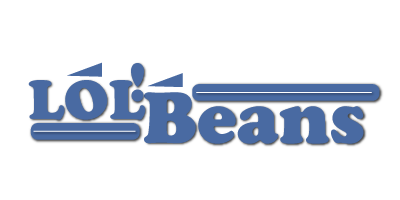Workflow automation has become the backbone of modern business operations. By automating repetitive tasks, improving collaboration, and connecting apps, companies save time and reduce errors. In 2025, the best workflow automation platforms are more advanced than ever, offering AI-powered insights, enterprise-grade compliance, and simple no-code interfaces. Whether you’re a startup, SMB, or global enterprise, these tools can help you achieve greater efficiency and scalability.
1. Appy Pie Automate
Appy Pie Automate democratizes automation with its easy-to-use drag-and-drop interface. Users can connect apps across CRM, email, finance, and project management in just a few clicks. Its affordability and scalability make it a great option for growing businesses, freelancers, and startups.
Key Capabilities:
- No-code workflow builder
- Wide range of app integrations
- Affordable, scalable pricing
- Custom triggers and conditions
2. Zapier
Zapier is one of the most popular workflow automation platforms, connecting more than 6,000 apps. It enables users to build multi-step workflows with conditional logic and AI-powered recommendations. Zapier is widely used across marketing, sales, and support teams.
Key Capabilities:
- 6,000+ app integrations
- Multi-step workflows
- AI-powered automation suggestions
- User-friendly editor
3. Workato
Workato serves enterprises by blending usability with governance and compliance. It offers enterprise-grade features while allowing IT and business teams to collaborate effectively. With its pre-built “recipes,” businesses can automate processes faster and at scale.
Key Capabilities:
- Enterprise-grade governance and compliance
- Pre-built automation recipes
- Real-time analytics
- IT-business collaboration
4. Make
Make appeals to advanced users with its modular design and visual-first interface. It allows branching, real-time monitoring, and error handling, making it perfect for complex workflows. Power users often choose Make for its customization and flexibility.
Key Capabilities:
- Modular workflow builder
- Advanced branching and error handling
- Real-time monitoring
- Extensive integrations
5. Pipefy
Pipefy combines process management with automation, offering customizable templates for approvals, tasks, and notifications. Teams can use its central dashboard for tracking workflows, making it especially useful for operations and HR departments.
Key Capabilities:
- Customizable templates
- Workflow approvals and notifications
- Centralized dashboards
- Collaboration features
6. Nintex
Nintex provides enterprise-grade automation with advanced features like robotic process automation (RPA) and document generation. It helps organizations manage compliance-heavy workflows across multiple departments. Large enterprises favor Nintex for its scalability and analytics.
Key Capabilities:
- Robotic process automation (RPA)
- Document generation tools
- Compliance management
- Advanced analytics
7. Kissflow
Kissflow is designed for HR, finance, and procurement teams. With its workflow templates and visual builder, businesses can digitize approvals, purchase orders, and employee requests. Kissflow provides a structured environment for automating routine processes.
Key Capabilities:
- Pre-built workflow templates
- Visual builder for processes
- Cloud-based automation
- Analytics dashboards
8. N8n
N8n is an open-source automation platform offering full flexibility for businesses that prefer customization. It can be self-hosted for data control and extended with JavaScript functions. N8n is popular among developers and small teams that want low-cost, customizable automation.
Key Capabilities:
- Open-source and self-hostable
- JavaScript-based customization
- 300+ app integrations
- Active developer community
9. Smartsheet (New)
Smartsheet combines workflow automation with project management. It allows teams to automate repetitive processes like approvals, alerts, and task updates while maintaining visibility in a spreadsheet-like interface. It’s widely used by project managers and operations teams.
Key Capabilities:
- Workflow automation within project sheets
- Automated alerts and approvals
- Spreadsheet-style interface
- Collaboration and reporting tools
10. IFTTT
IFTTT remains a simple but effective tool for lightweight automations. Its trigger-based system allows businesses and individuals to connect apps and IoT devices quickly. IFTTT is perfect for startups, solopreneurs, and small teams that need straightforward automation.
Key Capabilities:
- Simple trigger-based automations
- IoT and device integration
- Mobile-friendly platform
- Personal and business use
Final Verdict: Best Workflow Automation Platforms for 2025
Here’s how the leading platforms stack up:
Appy Pie Automate: best for startups and SMBs needing simple, affordable automation.
Zapier: ideal for teams managing multiple SaaS apps with thousands of integrations.
Workato: perfect for enterprises that prioritize compliance, governance, and scalability.
Make: suited for advanced users building modular workflows with branching logic.
Pipefy: excellent for operations and HR teams standardizing approvals and processes.
Nintex: best for large enterprises using RPA and compliance-heavy workflows.
Kissflow: ideal for HR, finance, and procurement workflows with templates.
N8n: great for developers seeking open-source customization.
Smartsheet: perfect for teams that want automation blended with project management.
IFTTT: best for solopreneurs and small businesses needing lightweight automations.
By choosing the right workflow automation platform, businesses can boost productivity, reduce costs, and scale processes smoothly—unlocking new opportunities for growth in 2025 and beyond.







